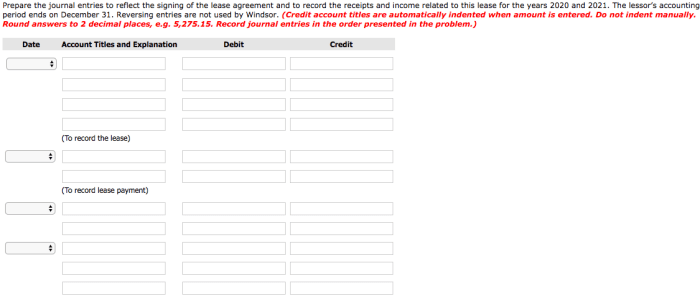The fine print renters insurance agreement answer key unlocks a treasure trove of insights into the intricate world of renters insurance, empowering individuals to navigate the complexities of their coverage with confidence and clarity. This comprehensive guide delves into the depths of renters insurance policies, deciphering the often-overlooked details that hold the key to safeguarding one’s belongings and financial well-being.
Understanding the fine print is not merely an academic exercise; it is an essential step towards protecting one’s interests and ensuring that the insurance policy serves its intended purpose. By unraveling the intricacies of coverage details, premiums and deductibles, the claims process, special considerations, and legal implications, this answer key empowers renters to make informed decisions that safeguard their financial future.
Coverage Details

Renters insurance agreements typically provide coverage for a wide range of perils that can cause damage to the renter’s personal property or result in liability for injuries or damages to others. These perils typically include:
- Fire
- Theft
- Vandalism
- Water damage
- Smoke damage
- Liability for injuries to others
- Liability for property damage caused to others
It is important to note that renters insurance policies also include exclusions, which are specific events or situations that are not covered by the policy. Common exclusions include:
- Flooding
- Earthquakes
- Acts of war
- Intentional damage caused by the renter
Understanding the coverage limits of a renters insurance policy is crucial. Coverage limits determine the maximum amount of money the insurance company will pay out for a covered loss. It is important to choose coverage limits that are sufficient to cover the value of the renter’s personal property and potential liability.
Premium and Deductibles

The premium for a renters insurance policy is the amount of money the renter pays to the insurance company in exchange for coverage. Premiums are typically calculated based on a number of factors, including:
- The value of the renter’s personal property
- The location of the rental unit
- The renter’s claims history
- The coverage limits selected
A deductible is a specific amount of money that the renter is responsible for paying out of pocket before the insurance company begins to pay for a covered loss. Deductibles can help to lower the premium for a renters insurance policy.
However, it is important to choose a deductible that the renter can afford to pay in the event of a loss.
There are a number of ways to find affordable renters insurance options. Renters can compare quotes from multiple insurance companies, ask for discounts, and bundle their renters insurance with other insurance policies, such as auto insurance or homeowners insurance.
Claims Process

If a renter experiences a covered loss, they must file a claim with their insurance company. The claims process typically involves the following steps:
- Reporting the loss to the insurance company
- Providing documentation of the loss
- Cooperating with the insurance company’s investigation
- Receiving a settlement from the insurance company
It is important to document the loss thoroughly and provide the insurance company with all of the necessary documentation. This will help to ensure that the claim is processed quickly and efficiently.
Renters can maximize their claim payouts by:
- Understanding their coverage limits
- Documenting the loss thoroughly
- Cooperating with the insurance company’s investigation
- Negotiating with the insurance company
Special Considerations
Renters should pay attention to specific clauses or provisions in their renters insurance agreements. These clauses may include:
- Replacement cost coverage
- Additional living expenses coverage
- Personal liability coverage
- Endorsements
Renters may also want to consider purchasing additional coverage options, such as:
- Flood insurance
- Earthquake insurance
- Jewelry insurance
- Valuables insurance
It is important to review the fine print of a renters insurance agreement carefully before signing it. This will help to ensure that the renter understands the coverage provided and the terms of the agreement.
Legal Implications: Fine Print Renters Insurance Agreement Answer Key
Renters insurance agreements are legal contracts between the renter and the insurance company. These contracts create a number of legal obligations for both parties.
The renter is obligated to:
- Pay the premiums on time
- Report any changes to the risk
- Cooperate with the insurance company’s investigation
The insurance company is obligated to:
- Provide coverage for covered losses
- Pay claims promptly
- Defend the renter in lawsuits
If there is a dispute between the renter and the insurance company, the renter may be able to file a complaint with the state insurance department or file a lawsuit.
FAQ Section
What are the most common types of coverage included in renters insurance policies?
Renters insurance policies typically cover personal property, liability, and additional living expenses. Personal property coverage protects your belongings from damage or loss due to covered perils, such as fire, theft, and vandalism. Liability coverage protects you from financial responsibility if someone is injured or their property is damaged while on your rental property.
Additional living expenses coverage reimburses you for costs incurred if you are unable to live in your rental property due to a covered peril.
What are some examples of covered perils and exclusions in renters insurance policies?
Common covered perils in renters insurance policies include fire, smoke, theft, vandalism, and water damage. However, there are also a number of exclusions, such as damage caused by earthquakes, floods, and acts of war. It is important to carefully review your policy to understand what is and is not covered.
Why is it important to understand the coverage limits in my renters insurance policy?
Coverage limits determine the maximum amount that your insurance company will pay for covered losses. If you have insufficient coverage, you may be responsible for paying for any expenses that exceed your policy limits. It is important to assess your needs carefully and select coverage limits that are appropriate for your situation.